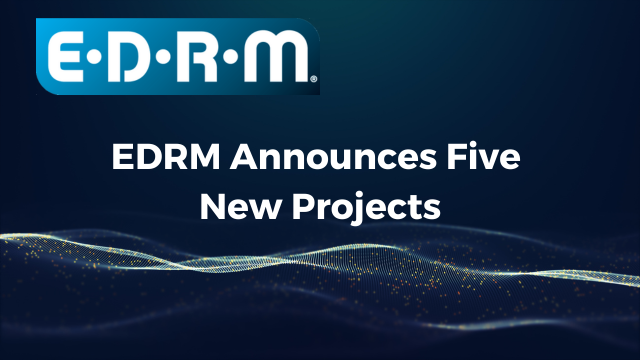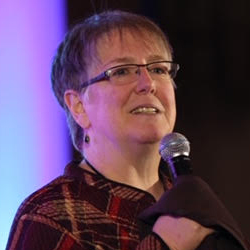
MINNEAPOLIS, MN, USA, July 15, 2023 /EINPresswire.com/ — Setting the global standards for e-discovery, the Electronic Discovery Reference Model (EDRM) is pleased to announce the formulation of 5 new project teams. All of these teams, described below, are currently recruiting members. If you are willing to volunteer a little bit of time to help the e-discovery community, we welcome your contributions. Please reply by email to info@edrm.net to let us know which Project Teams you may be interested in joining. All contributors are welcome, all we ask is that you take your advocate hat off, we are looking for diverse perspectives and expertise.
New Project Teams:
- EDRM 2.0—As we approach the 20th anniversary of the original EDRM diagram, the diagram recently underwent a “cosmetic” revision, but it is also time to revisit the diagram substantively. How should it be changed to make it more current, more useful, and more accurate with regard to the end-to-end ediscovery process? This work will build on ideas already developed by our prior EDRM update team, plus the recent update to the associated Information Governance Reference Model (IGRM) recently completed by another project team. We already have about 30 volunteers for this team, but there is still room for more.
- ESI Protocol Team—The main goal of this Committee is to develop a model ESI Protocol that can be adapted and adopted for multiple cases so that case teams do not have to “reinvent the wheel” for each case. We want a model that will be palatable to most courts and parties on both sides of the “v.”—which means if you more often represent parties that do the bulk of the requesting (often the plaintiffs) rather than parties that do the bulk of the producing (often defendants), we particularly need your voices to be included, because many of our active EDRM participants work with big firms or companies that are more often on the defense side. We also recognize that there is no “one size fits all” when it comes to ESI protocol, so any model protocol developed by this project team can include optional provisions that parties can negotiate to include or not include for any particular cases. The protocol may also reference and incorporate the recently published EDRM Privilege Log Protocol, as well as a TAR Protocol that comes out of the work of the team described below.
- TAR Protocol Team—Similar to the ESI Protocol Team but this one would focus specifically on predictive coding and take a shot at developing a generally accepted protocol for the use of technology assisted review to reduce the burden and costs of more traditional linear document review, while still maintaining or improving accuracy. The above comments about representation from both sides, and the ability to include optional provisions, also apply to any model TAR protocol. This Team would build on the EDRM TAR Guidelines published in 2019 by an earlier EDRM Team.Ability to remove your advocacy/preferred platform hat is essential.
- Discovery Workflow Team—The mission of this Team is to take a closer look at the full discovery workflow—not just in terms of traditional and updated document review protocols but then moving forward to follow-on stages of case and story building, deposition preparation, dispositive motions and trial preparation—stages of discovery that often do not get the same amount of attention as initial document review and production. The ultimate output of this Team would be decided by the Team (as with all teams) but could include one or more white papers, illustrative charts, reviews of available technology, or other reference materials useful to litigation parties, their counsel and their other service providers.
- Generative AI Team—Chat GPT and other Generative Artificial Intelligence Products and advances are taking the world by storm, and the legal world is no exception. This team would build on the work of prior EDRM Teams, including the Team that drafted and published the Use of Artificial Intelligence in Discovery white paper in 2021, and the recently released Professional Responsibility Considerations in AI for eDiscovery. An initial project of this Team would be to develop guidelines for the use of generative AI by legal professionals, and the Team could then determine whether to work on other related materials—or just let the AI take it from there.
All EDRM members work on project Teams on a volunteer basis—typically as an adjunct to their “day jobs.” Accordingly, Team leaders try to limit the time demanded of Team members and to be flexible where paying job responsibilities interferes. Most Teams meet no more than once or twice per month, with limited independent work taking place in between meetings to generate work product for team discussion and editing. Project Team leaders take on additional organizational responsibilities and serve as liaisons to the EDRM Board of Project Trustees, which generally meets bimonthly to track team progress and lend any needed assistance. Team leaders are chosen by EDRM Management, and limited by available positions, but if you have the time and willingness to serve in such a leadership role, please do not hesitate to self-nominate.
All contributors are welcome, all we ask is that you take your advocate hat off, we are looking for diverse perspectives and expertise.
Kaylee Walstad, EDRM chief strategy officer
All EDRM members are encouraged to volunteer for at least one project team, to contribute their knowledge and help shape and improve the resources that they, their colleagues and clients may rely on in the future. If you are not already a member of an existing EDRM project team (or have the time to add another) we encourage you to sign up! If you are interested in more than one project team, and don’t have time to sign up for all that interests you, please provide us you’re your list of teams that interest you, and we can assign you where we have the greatest needs.
“All contributors are welcome, all we ask is that you take your advocate hat off, we are looking for diverse perspectives and expertise,” said Kaylee Walstad, EDRM chief strategy officer.
Thanks so much for your participation in EDRM and please don’t forget to reply promptly if you are interested in signing up for one or more of the new EDRM Project Teams to info@edrm.net.
Among the EDRM opportunities and resources available are the ability to connect, network and contribute via EDRM projects and events, share their expertise with our global community. The EDRM community of knowledgeable, multidisciplinary professionals is building resources to enhance e-discovery, privacy, security and information governance frameworks, processes and standards.
The EDRM community is comprised of 33% corporations, 30% law firms and 23% software and service providers, 12% governments with the remaining 2% being a mix of educators, students, judges and media in 145 countries spanning six continents.
Read the release on the wire here.
Empowering the global leaders of e-discovery, the Electronic Discovery Reference Model (EDRM) creates practical resources to improve e-discovery, privacy, security and information governance. Since 2005, EDRM has delivered leadership, standards, tools and guides to improve best practices throughout the world. EDRM has an international presence in 145 countries spanning six continents and growing has an innovative support infrastructure for individuals, law firms, corporations and government organizations seeking to improve the practice and provision of data and legal discovery. Learn more about the EDRM today at EDRM.net. Contact info@edrm.net for more information on how to get involved in our global project community.
EDRM Media Contact
Kaylee Walstad
Chief Strategy Officer, EDRM
+1 612-804-3244
email us here


